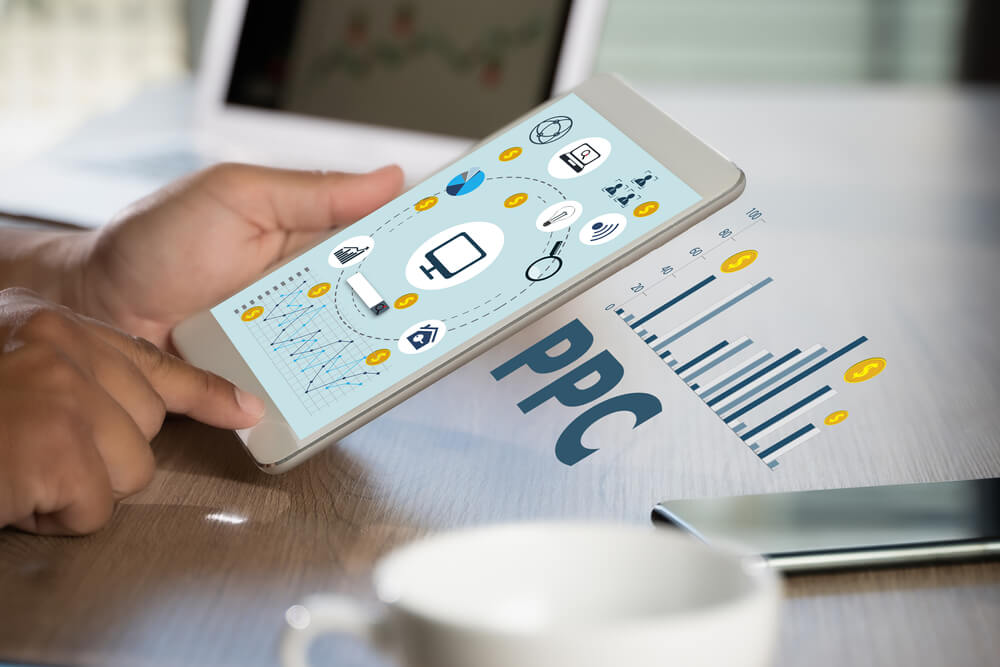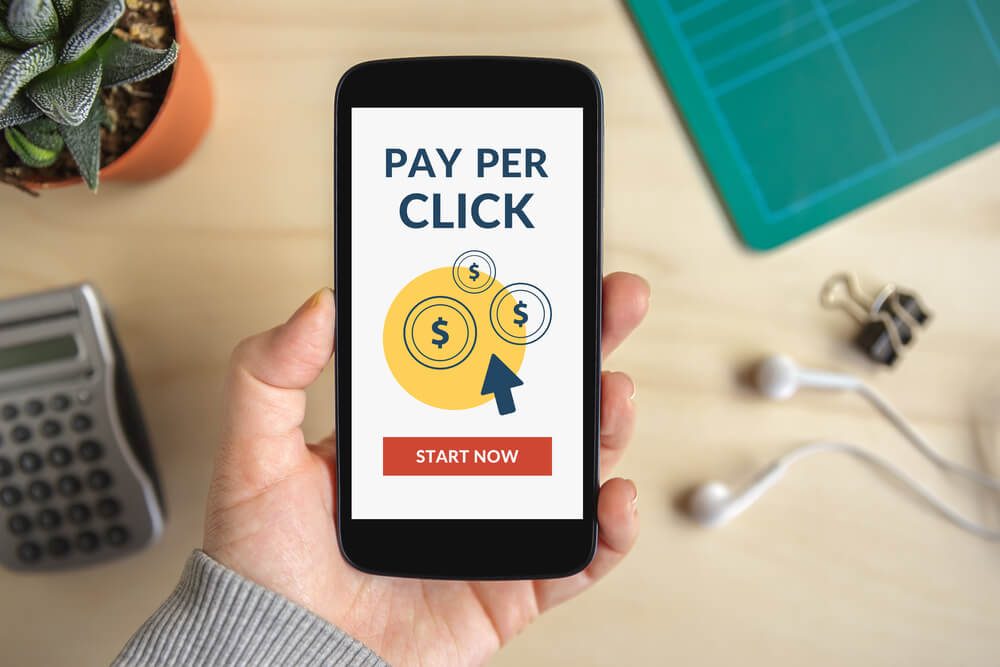Have you been looking for new ways to drive high-quality traffic to your website? PPC targeting, also known as pay-per-click audience targeting is one of the best ways to widen your brand reach. Although implementing PPC advertising may seem intimidating initially, it is a unique opportunity to gain visibility when applied strategically. We’ll show you how to create and reach PPC targets while driving the kind of high-quality traffic you are looking for to your website.
What is PPC Targeting?
PPC targeting refers to a method of consumer segmentation that is based on demographic data. Having a thorough understanding of your target audience is the first step of developing any kind of marketing campaign. When creating PPC targets, knowing your potential customer’s lifestyle and preferences will help create alignment in your marketing strategy. Whether you choose to use Google Ads or Microsoft Ads, the typical demographic information you should collect includes:
- Age
- Location
- Gender
- Interests
- Income
The more information you collect, the better you will understand the buyer’s journey. This information will give you an idea of what potential customers are looking for on the internet and how to reach them. Using your resources effectively and efficiently will save you time and money. Even prominent companies like Netflix use PPC targeting to improve their recommendations and boost viewership!
How does PPC Targeting Work?

PPC targeting contains two elements called first and third-party data. You can use both types of data for customer segmentation based on your business goals. One of the most effective ways to use this information is to create buyer personas and customer personalization. PPC targets utilize both forms of data to create successful ad campaigns:
- First-party data — This type of data consists of everything about a customer’s interests and demographics that are captured by the business through cookies, browser storage, or information sent from websites to the user’s computer.
- Third-party data — This type of data consists of information secured from an outside source. Since this information is not gathered by the business, it will need to be filtered before it is used.
How to use PPC Targeting for Business
PPC targeting is the foundation of a successful online advertising campaign. When the wrong PPC targets are in place, you will reach the wrong customers and generate no revenue. For high-quality traffic from the right audience, PPC targets should be set up using a combination of the following components:
- Demographics — To adequately reach your target audience, you should know who they are. PPC targets work best when they are developed using demographic data. Before taking this step, qualitative and quantitative conversion data should be collected using Google Analytics. This will provide a comprehensive view of the age and gender of your website visitors and where your PPC targets should be focused. Other information that can be used includes:
- Language
- Relationship and parental status
- Income
- Political affiliation
Combine qualitative data with the use of customer surveys and 1‑on‑1 interviews to get a clearer picture of who your current and potential customers are. When you’ve connected conversions to demographic data, you can use Google Ads or Facebook to run ads.
- Corporate networking — If your conversion research shows that your products or services are better suited for B2B, then LinkedIn is a viable option for corporate PPC targeting campaigns. Some PPC targets to include are:
- Company name
- Company industry
- Company size
- Title
- Job seniority
- Job function
- Education
- Degrees
- Skills
- Groups
- Age
Research shows that most PPC targeting campaigns are done on Facebook making LinkedIn a less competitive space for B2B marketing. LinkedIn ads are also small and the acquisition costs are higher. Even then, some experts will argue that it’s a better platform for business-driven individuals.
You can address these challenges by creating clarity in your value proposition and revitalizing your ads regularly to avoid ad fatigue.
- Conversion targeting — As each buyer goes through the buying cycle before making a purchase, they will experience various stages that include awareness, consideration, purchase, and advocacy. To increase your conversion rates, you want to target potential customers who are in the consideration stage since they are considering their options. These customers will spend more time comparison shopping before committing.
The messaging that you will use with a customer in the consideration stage will be very different from that of the awareness stage. This technique is called conversion intent targeting and is available through Microsoft Ads and Google Ads Search. Things to consider when implementing intent targeting are:
-
- It’s easy — Even though Google Ads and Microsoft Ads make intent targeting easier, you should always tailor your value proposition and creative efforts to the appropriate buying stage.
- Measure thoroughly — When it comes to measuring effectiveness, keywords that result in a click or purchase may not provide the whole picture. A more detailed perspective should include identifying the keywords with the largest purchase and lowest cost per sale.
- Understand match types — Spend time understanding match types and the performance implications.
- Geographic targeting - You don’t have to be a local advertiser to use geographic targeting tools. By starting simple and scaling, you can monitor your performance by specific areas of the country or zip codes. Being purposeful by using Google Analytics to make an educated guess about where to run ads can inform other aspects of a marketing campaign. There are a couple of benefits of geographic targeting whether you are a local or national advertiser, including:
- Personalization — A personalized experience can be created starting with the keyboard to the landing page.
- Trends — Identifying trends and improved segmentation can be achieved through the use of geographic targeting.
- Behavior prediction — Predicting future consumer behavior can be a significant advantage in PPC targeting. The best way to accomplish this is through the use of interests, behavior, and topic targeting techniques. Facebook and Google Ads Display make behavior prediction easy:
- Interests — Also referred to as affinity audiences, this segmentation groups people based on what they like and view online.
- Behavior — This segmentation is based on third-party data.
- Topics — Groups based on similar topics like entertainment, arts, events, and more.
- Retarget and duplicate — When you’ve mastered the basics of PPC targeting, you can begin to retarget and duplicate audiences. Since the conversion research has been completed through this process, you can do more with this valuable information using these tools:
- Retargeting — When you want to win back potential buyers who visited your website while comparison shopping or are not ready to make a purchase, retargeting is the best tool.
- Lookalike audiences — Facebook can create lookalike audiences to match previous ones that you’ve identified through custom audiences using leads or customers.
- Similar audiences — You can also use Google Ads to create lookalike audiences.
Benefits of PPC Targeting

The last thing you want to do is waste your money by publishing ads without considering your potential target market. High-quality traffic leads to a high return on investment. When you implement PPC targeting into your marketing plan, you can expect:
- Maximize time and resources — By focusing on specified groups of people, you can focus your ads and make the most of a marketing budget. This can have a big impact on long-term strategies and budget management. If you’re creating marketing campaigns on limited resources, it’s even more essential to get quick and cost-effective solutions.
- Sales funnel optimization - The customer journey can be described as a sales funnel. PPC targeting does the heavy lifting for potential customers by presenting what they need at the moment they begin looking for it online. When PPC targets are appropriately applied, a potential customer may skip all buying stages and make a purchase.
- Customer retention improvement — The cost of new customer acquisition can be high so promoting customer loyalty with PPC targets tells the customer that you are listening. Honing in on your current customer needs by using special promotions for current customers will help you retain more customers. They will continue to come back since you’ve provided them with the right products or services each time they visit your site.
We Can Help You Generate High-Quality Traffic
Most business owners are busy creating new products, promotions, events, and connections. By outsourcing a PPC targeting campaign, you will have a dedicated team of SEO experts to focus on driving high-quality web traffic to your website. As award-winning integrated marketing specialists, we understand that the key to a successful PPC targeting campaign is the ability to convert this traffic into conversions. We get results for clients who partner with us and we can do the same for you.
Give us a call today for a free marketing audit and let’s discuss how we can grow your business!









